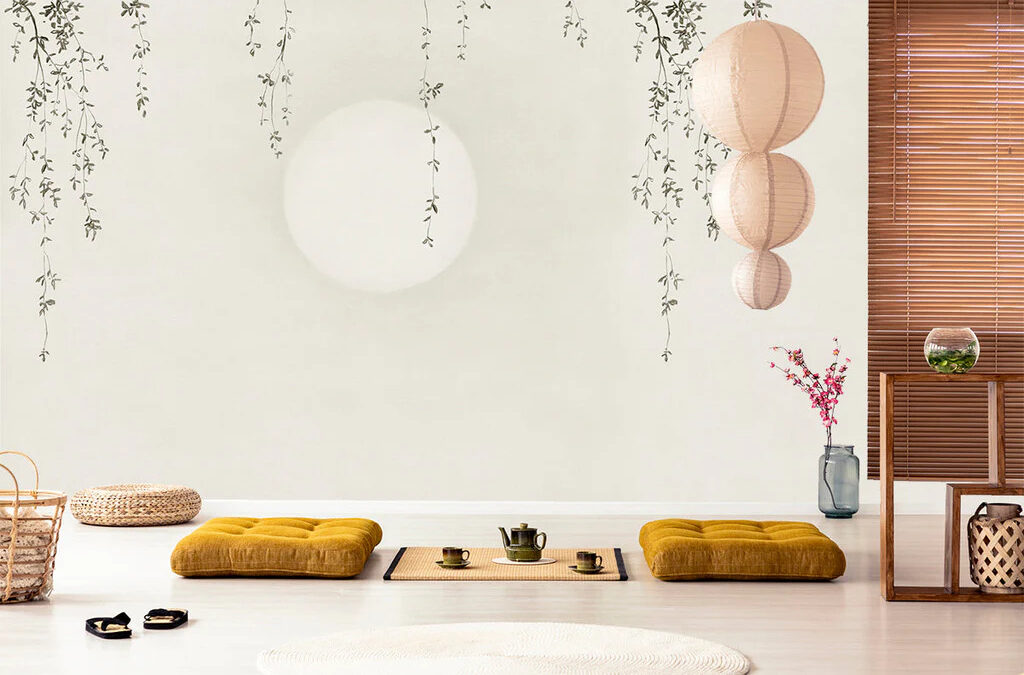Japanese decor, with its minimalist aesthetic, serene ambiance, and thoughtful design principles, has captivated people around the world. Rooted in a rich cultural heritage, Japanese interior design seamlessly blends functionality with beauty, creating spaces that evoke a sense of harmony and tranquility. In this article, we explore the key elements that define Japanese decor and the enduring appeal it holds for those seeking a serene and contemplative living environment.
Minimalism as a Foundation:
At the heart of Japanese decor lies the principle of minimalism. This design philosophy emphasizes simplicity, functionality, and the elimination of unnecessary elements. The concept of “Ma,” which can be translated as “negative space,” is integral to Japanese minimalism. It involves the thoughtful use of empty spaces to enhance the overall design and create a sense of balance and calmness within a room.
Natural Materials and Organic Forms:
Japanese decor often incorporates natural materials such as wood, stone, and paper. These materials are chosen for their ability to bring the beauty of the outdoors into interior spaces. Wooden elements, in particular, play a significant role, with a preference for warm, light-colored woods like cedar and hinoki. The use of organic forms, inspired by nature, contributes to the creation of a harmonious and peaceful environment.
Shoji Screens and Fusuma Doors:
Traditional Japanese homes feature Shoji screens and Fusuma doors, both of which play a crucial role in defining the interior space. Shoji screens, made of translucent paper and wooden frames, allow diffused natural light to permeate the room while maintaining privacy. Fusuma doors, sliding panels typically adorned with paper or fabric, serve as flexible room dividers. The use of these elements adds an authentic touch to Japanese-inspired interiors, creating a sense of openness and fluidity.
Tatami Flooring:
Tatami mat flooring is a hallmark of Japanese decor, contributing to the overall sense of comfort and connection to nature. Made from natural materials like rush grass, tatami mats provide a soft and resilient surface. The standardized size of tatami mats has even influenced the dimensions of traditional Japanese rooms, creating a modular and harmonious layout.
Furniture with a Purpose:
Furniture in Japanese decor is chosen with careful consideration for both form and function. Low-profile furniture pieces, such as the kotatsu (a heated table) and zaisu (floor chair with no legs), maintain a sense of openness in the living space. The emphasis on simplicity extends to the arrangement of furniture, often favoring a few well-chosen pieces over an abundance of items. Each piece serves a purpose and contributes to the overall balance of the room.
Zen Influence:
Zen Buddhism has left an indelible mark on Japanese decor, influencing its emphasis on simplicity, mindfulness, and a connection to the present moment. Gardens Zen, with its carefully raked gravel and strategically placed rocks, inspires a sense of tranquility and contemplation. Incorporating elements of Zen into interior spaces, such as bonsai trees, meditation cushions, or symbolic artwork. Further enhances the serene atmosphere associated with Japanese decor.
Neutral Color Palette:
The color palette in Japanese decor is typically subdued and neutral, with an emphasis on earthy tones such as beige, gray, and soft greens. This restrained use of color contributes to a calming and unobtrusive atmosphere. Accents of bold color may be introduced sparingly, often inspired by nature, such as the deep reds of traditional lacquerware or the vibrant hues of seasonal flowers.
Conclusion:
Japanese decor, with its emphasis on minimalism, natural materials, and a deep connection to nature, continues to inspire individuals seeking a tranquil and harmonious living environment. The enduring appeal of Japanese design lies in its ability to create spaces that are not just visually appealing but also foster a sense of serenity and balance. As the world becomes increasingly fast-paced, the timeless allure of Japanese decor provides a refuge, inviting individuals to embrace simplicity. Find beauty in the essentials, and cultivate a sense of calm in their homes.

